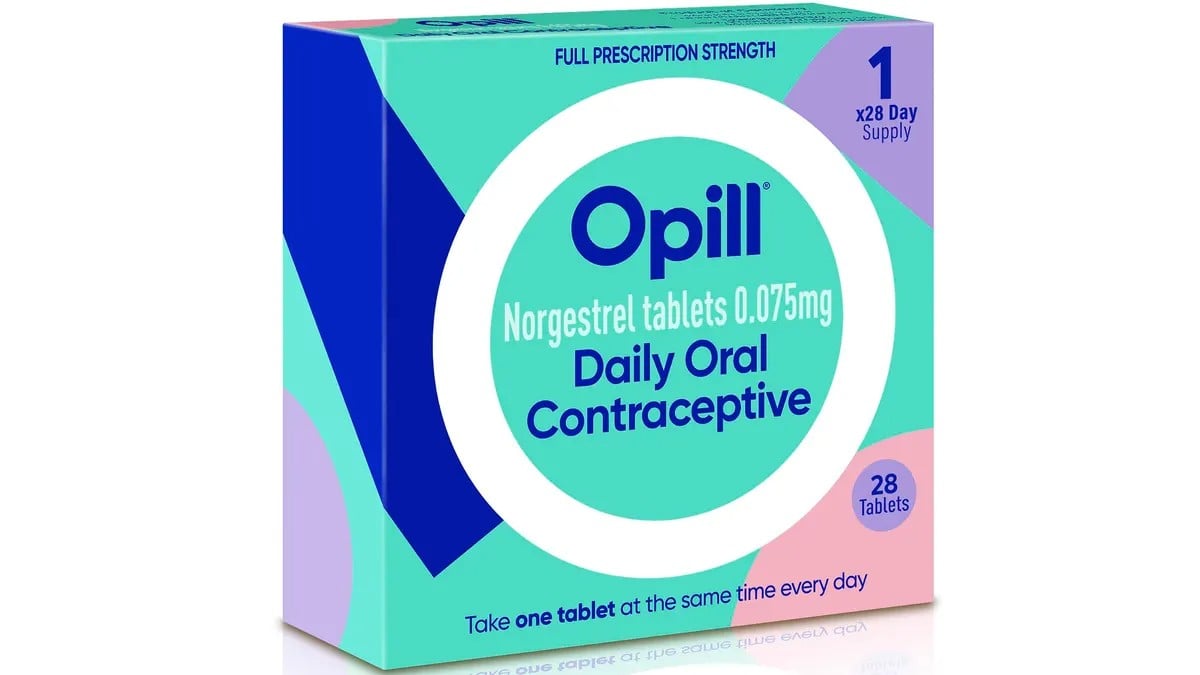Post-Roe America: How OTC Birth Control Reshapes Reproductive Healthcare

Table of Contents
Increased Access and Reduced Barriers to Contraception
The most immediate impact of OTC birth control is the removal of significant barriers to accessing contraception. For many, the cost of prescription birth control, coupled with the need for regular doctor's visits, presents a formidable obstacle. OTC birth control offers a potential solution.
- Lower Costs: OTC options are generally less expensive than prescription methods, making them accessible to a wider range of individuals, particularly those with limited financial resources or lacking health insurance.
- Elimination of Doctor Visits: The convenience of over-the-counter availability removes the need for appointments, potentially saving time and reducing anxiety associated with healthcare visits. This is especially beneficial for individuals in rural areas or those facing transportation challenges.
- Enhanced Privacy: Purchasing OTC birth control offers greater privacy than obtaining a prescription, allowing individuals to manage their reproductive health with more discretion.
- Improved Access for Marginalized Communities: This is particularly crucial for individuals in underserved communities who face geographical limitations, lack of insurance coverage, or systemic barriers to healthcare.
However, concerns remain. Ensuring individuals have the proper education and understanding of different birth control methods and their effectiveness is paramount to maximizing the positive impacts of OTC availability. Misinformation and lack of knowledge could lead to improper use and reduced efficacy.
Impact on Unintended Pregnancy Rates
Increased access to OTC birth control has the potential to significantly influence unintended pregnancy rates in post-Roe America.
- Reduced Unintended Pregnancies and Abortions: Wider access to readily available and affordable contraception could lead to a decrease in unintended pregnancies, subsequently lowering the demand for abortion services.
- Impact on Maternal Mortality Rates: Reducing unintended pregnancies can contribute to a decrease in maternal mortality rates, as many pregnancy-related deaths are associated with unintended or high-risk pregnancies.
- Lessons from Other Countries: Examining data from countries with established OTC birth control policies offers valuable insights into potential outcomes. These studies can provide evidence-based predictions for the impact in the US context.
It’s crucial to acknowledge that other factors besides birth control access significantly influence pregnancy rates, including socioeconomic status, education levels, and cultural norms. A comprehensive approach addressing these multifaceted issues is necessary for a holistic impact assessment.
The Role of Education and Public Health Initiatives
The success of OTC birth control in reducing unintended pregnancies hinges heavily on comprehensive sex education and effective public health initiatives.
- Accurate Information: Providing accessible and accurate information about different birth control methods, their effectiveness, and potential side effects is critical.
- Combating Misinformation: Addressing prevalent misconceptions and misinformation surrounding contraception is essential to ensure informed decision-making.
- Promoting Responsible Sexual Health: Public health campaigns should promote responsible sexual health practices, including the importance of consistent contraceptive use.
However, implementing effective educational programs faces significant challenges. Political and social obstacles, including resistance to comprehensive sex education, can impede efforts to maximize the benefits of OTC birth control.
Ethical and Legal Considerations Surrounding OTC Birth Control
Expanding access to OTC birth control raises several ethical and legal concerns.
- Safety and Efficacy: Debates continue regarding the safety and efficacy of self-administered birth control, particularly for certain methods.
- Potential for Misuse: Concerns exist about the potential for misuse or inappropriate use of certain contraceptive methods without proper guidance.
- Legal Implications: Legal ramifications for manufacturers, healthcare providers, and individuals using OTC birth control require careful consideration and ongoing legal dialogue.
These concerns necessitate ongoing discussions and the development of appropriate policy solutions to mitigate risks while ensuring access to safe and effective contraception.
The Future of Reproductive Healthcare in a Post-Roe Landscape
Increased OTC birth control access has the potential to significantly alter the delivery of reproductive healthcare in the long term.
- Shifting Paradigms: We may see a shift in the traditional model of reproductive healthcare delivery, with a greater emphasis on self-management and patient autonomy.
- Telehealth Integration: The integration of OTC birth control with telehealth services could further enhance access and convenience.
- Technological Advancements: Ongoing research and development in contraceptive technology will continue to shape the landscape of reproductive healthcare in the years to come.
Conclusion: Post-Roe America and the Future of OTC Birth Control
Increased access to OTC birth control presents a significant opportunity to reshape reproductive healthcare in post-Roe America. While it offers potential benefits in reducing unintended pregnancies and improving access, ethical and legal considerations must be addressed. Comprehensive sex education and robust public health initiatives are crucial for maximizing the positive impact of OTC birth control. Further research and open dialogue are essential to navigate the complexities of this evolving landscape. We must advocate for policies that support increased access to affordable and convenient OTC birth control options, empowering individuals to make informed decisions about their reproductive health in a post-Roe world.

Featured Posts
-
 Hacker Accused Of Millions In Office365 Executive Account Breaches
Apr 26, 2025
Hacker Accused Of Millions In Office365 Executive Account Breaches
Apr 26, 2025 -
 Lab Owner Pleads Guilty To Falsifying Covid Test Results
Apr 26, 2025
Lab Owner Pleads Guilty To Falsifying Covid Test Results
Apr 26, 2025 -
 The Military Base At The Heart Of Us China Rivalry
Apr 26, 2025
The Military Base At The Heart Of Us China Rivalry
Apr 26, 2025 -
 Access To Birth Control The Impact Of Over The Counter Availability Post Roe
Apr 26, 2025
Access To Birth Control The Impact Of Over The Counter Availability Post Roe
Apr 26, 2025 -
 A Timeline Of Karen Reads Murder Trials A Comprehensive Overview
Apr 26, 2025
A Timeline Of Karen Reads Murder Trials A Comprehensive Overview
Apr 26, 2025
Latest Posts
-
 Pegula Defeats Collins To Win Charleston Title
Apr 27, 2025
Pegula Defeats Collins To Win Charleston Title
Apr 27, 2025 -
 Charleston Tennis Pegula Beats Collins In Thrilling Match
Apr 27, 2025
Charleston Tennis Pegula Beats Collins In Thrilling Match
Apr 27, 2025 -
 Pegula Triumphs Charleston Open Update
Apr 27, 2025
Pegula Triumphs Charleston Open Update
Apr 27, 2025 -
 Charleston Tennis Pegula Claims Victory Against Collins
Apr 27, 2025
Charleston Tennis Pegula Claims Victory Against Collins
Apr 27, 2025 -
 Top Seed Pegula Triumphs Over Collins In Charleston Final
Apr 27, 2025
Top Seed Pegula Triumphs Over Collins In Charleston Final
Apr 27, 2025
